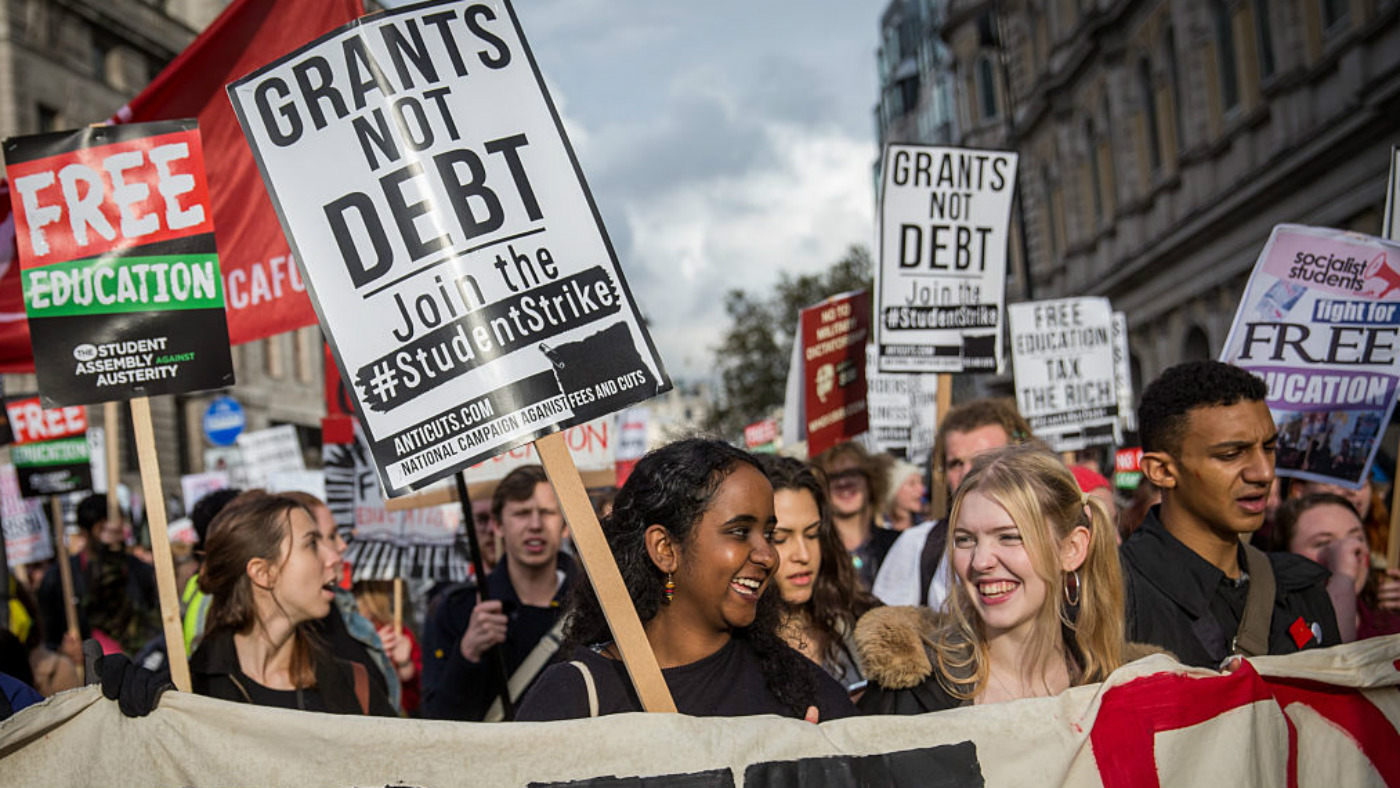Should you repay your student loan?
Early repayment only makes sense if you can pay off your loan entirely

A free daily email with the biggest news stories of the day – and the best features from TheWeek.com
You are now subscribed
Your newsletter sign-up was successful
Getting a university education has become expensive in recent years, which students paying up to £9,250 in tuition fees per year.
These high costs are causing more and more people to turn to student loans to pay for university, interest rates on which are going to hit 6.1 per cent in September.
So, if you are a student who took out a loan what should you do?
The Week
Escape your echo chamber. Get the facts behind the news, plus analysis from multiple perspectives.

Sign up for The Week's Free Newsletters
From our morning news briefing to a weekly Good News Newsletter, get the best of The Week delivered directly to your inbox.
From our morning news briefing to a weekly Good News Newsletter, get the best of The Week delivered directly to your inbox.
How does repaying a student loan work?
If you borrow money through a student loan then you don’t start repaying it until you earn more than £21,000 a year. When you do start repaying it the money is taken through your salary as nine per cent of your earnings.
If you haven’t managed to pay off your entire loan 30 years after you graduate then the remaining debt is cancelled.
Research by the Institute of Fiscal Studies has found that 77 per cent of students will never earn enough to repay their loans within 30 years of graduation - although this is by design as it means those that earn more pay back for longer and so subsidise those that go on to earn less.
A free daily email with the biggest news stories of the day – and the best features from TheWeek.com
Any graduate who never earns £21,000 a year will have their entire student debt cancelled after 30 years having paid back nothing.
How is interest applied?
You are charged interest on what you borrow from the moment the money hits your bank account. That means if you borrow the full amount each year at the end of a three year course you would owe around £50,000, with £6,000 of that being interest.
The interest rate while you are studying is set at RPI + three per cent - which means it will rise to 6.1 per cent in September. Once you graduate interest is calculated on a sliding scale according to how much you earn with higher earners paying more interest.
Should I try to overpay?
Probably not. A student loan is unlike any other borrowing you will ever have. That’s because whatever debt remains after 30 years is cancelled.
This means, unless you are earning enough to clear the whole debt within 30 years, it isn’t worth overpaying. If you don't clear the debt fully you’ll repay nine per cent of your earnings regardless of how much you owe.
A graduate earning £36,000 a year will repay £40,500 of a £55,000 total student loan over 30 years, according to Martin Lewis in The Guardian. The rest of the debt would be cancelled.
If that person paid off £10,000 of their loan when they graduated they would still repay the same amount over the 30 years, meaning they would have paid off an extra £10,000 that they never needed to pay. That undoes some of the progressive design of the system, too.
However, if you are likely to earn a high wage quite quickly after graduation, so will clear your entire debt, then it’s worth making an overpayment in order to reduce the total amount of interest you pay.
According to Lewis a graduate earning a starting salary of £40,000 with a two per cent above inflation pay rise each year would clear their debt within 30 years, so would benefit from overpaying to cut the interest paid.
Resist the urge to make an immediate overpayment on your student loan, then reassess the situation a couple of years after graduation. If you are settled in a high-paying job then it might be worth overpaying.
Should you pay your child’s fees to avoid the loan?
Merryn Somerset Webb gives good advice in the Financial Times to parents tempted to pay off their child’s fees up front for them:
“Wait and see how she goes. If she leaves university and looks as if she will fly, pay them off for her then. Yes, you will have paid a few thousand in interest for the first few years. But that is nothing to the loss you will be carrying if you paid upfront, only to see her enter a low-earning career that could have made her university education free.”